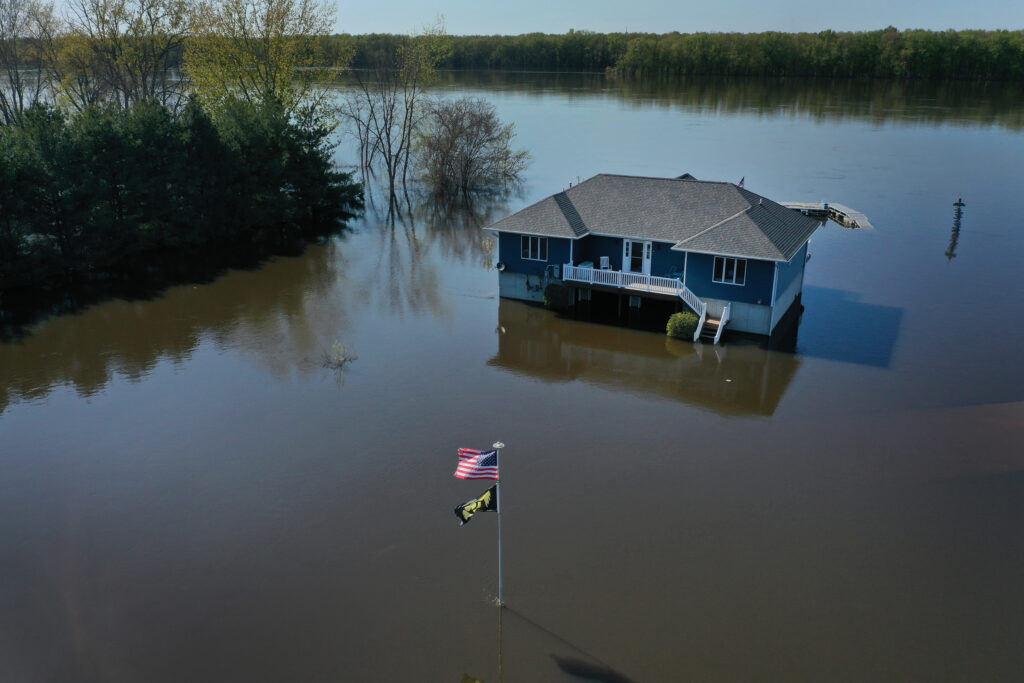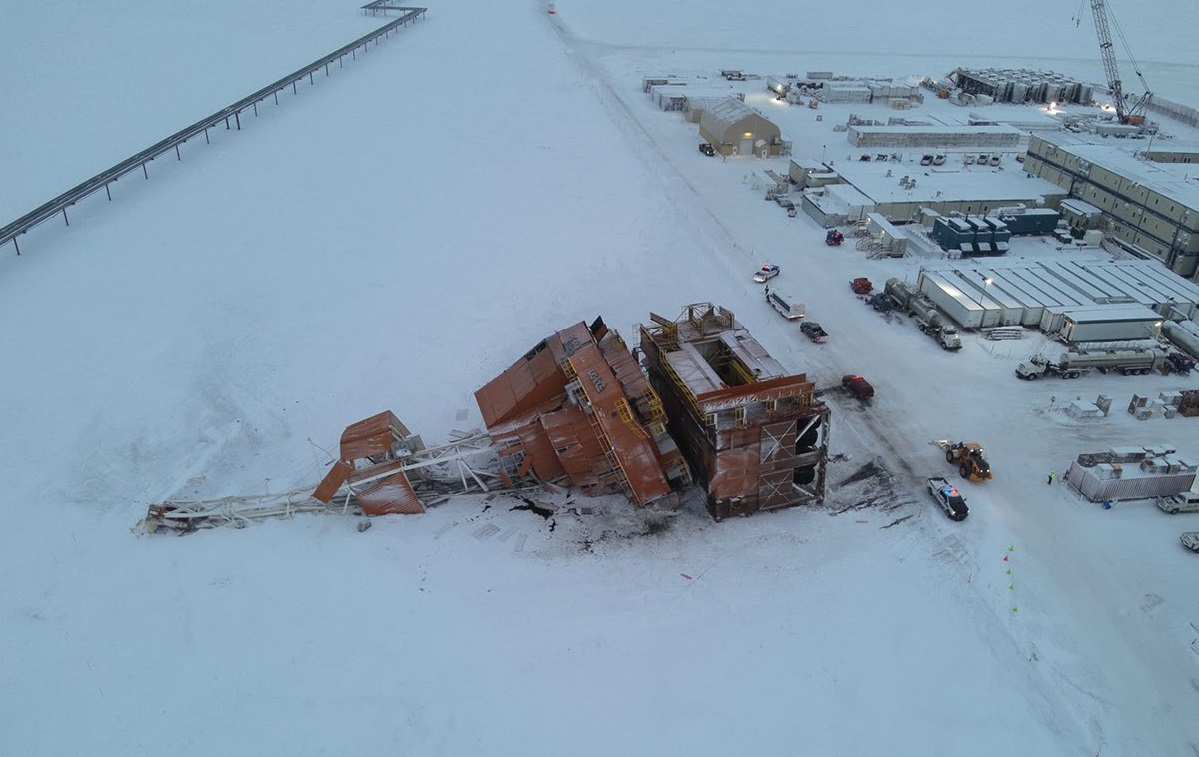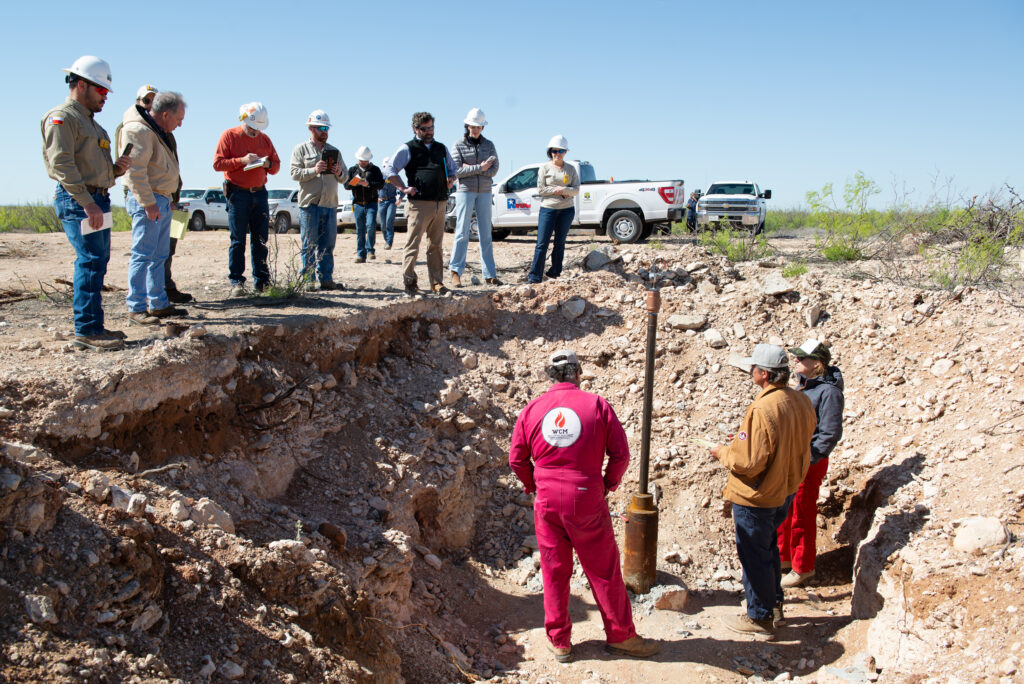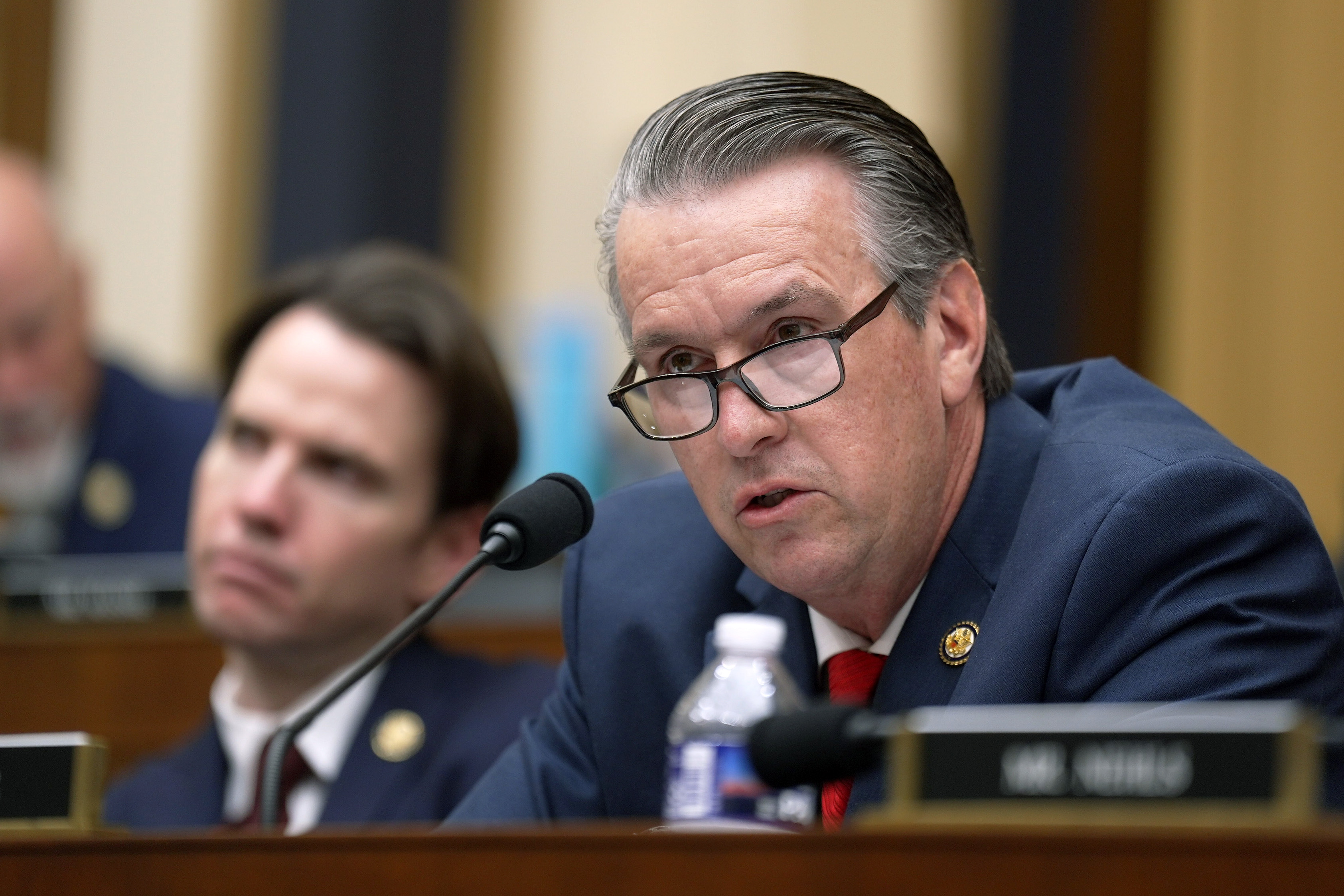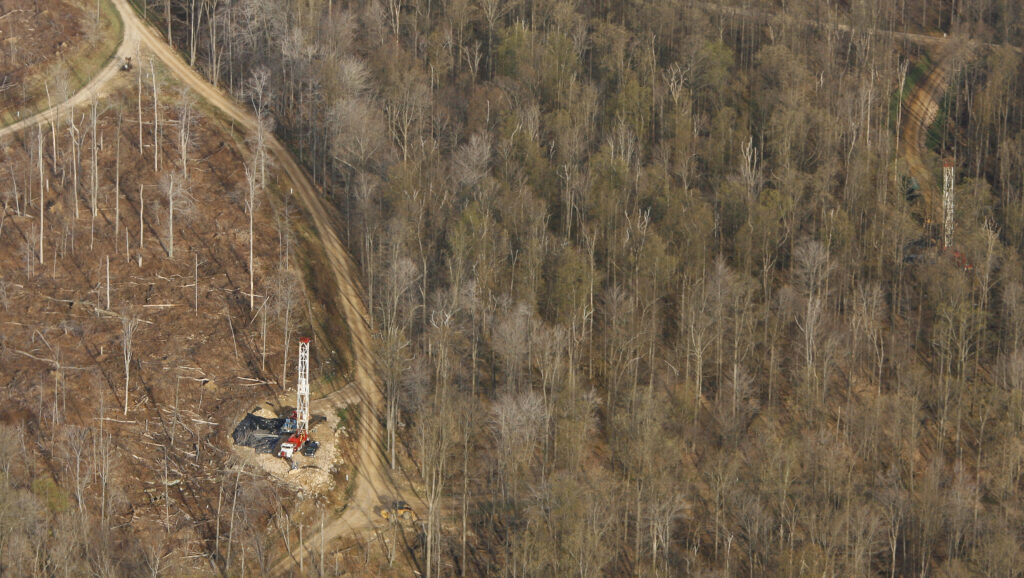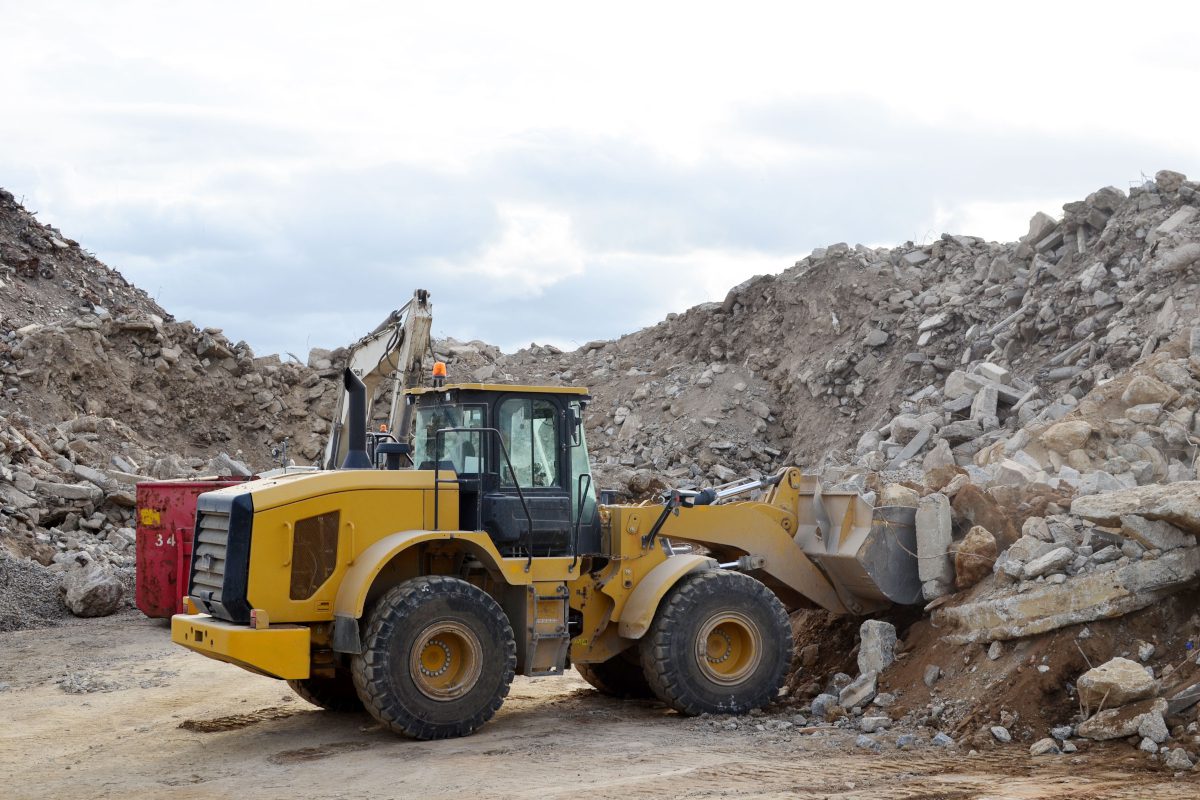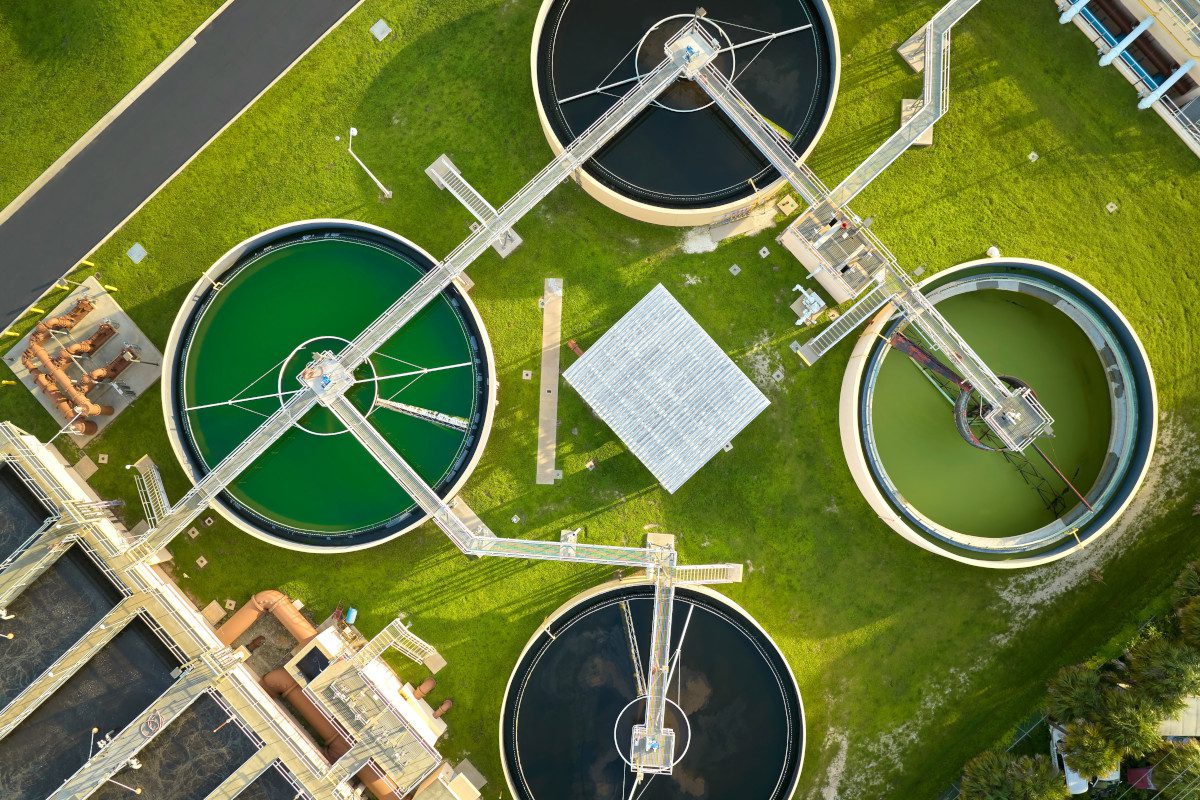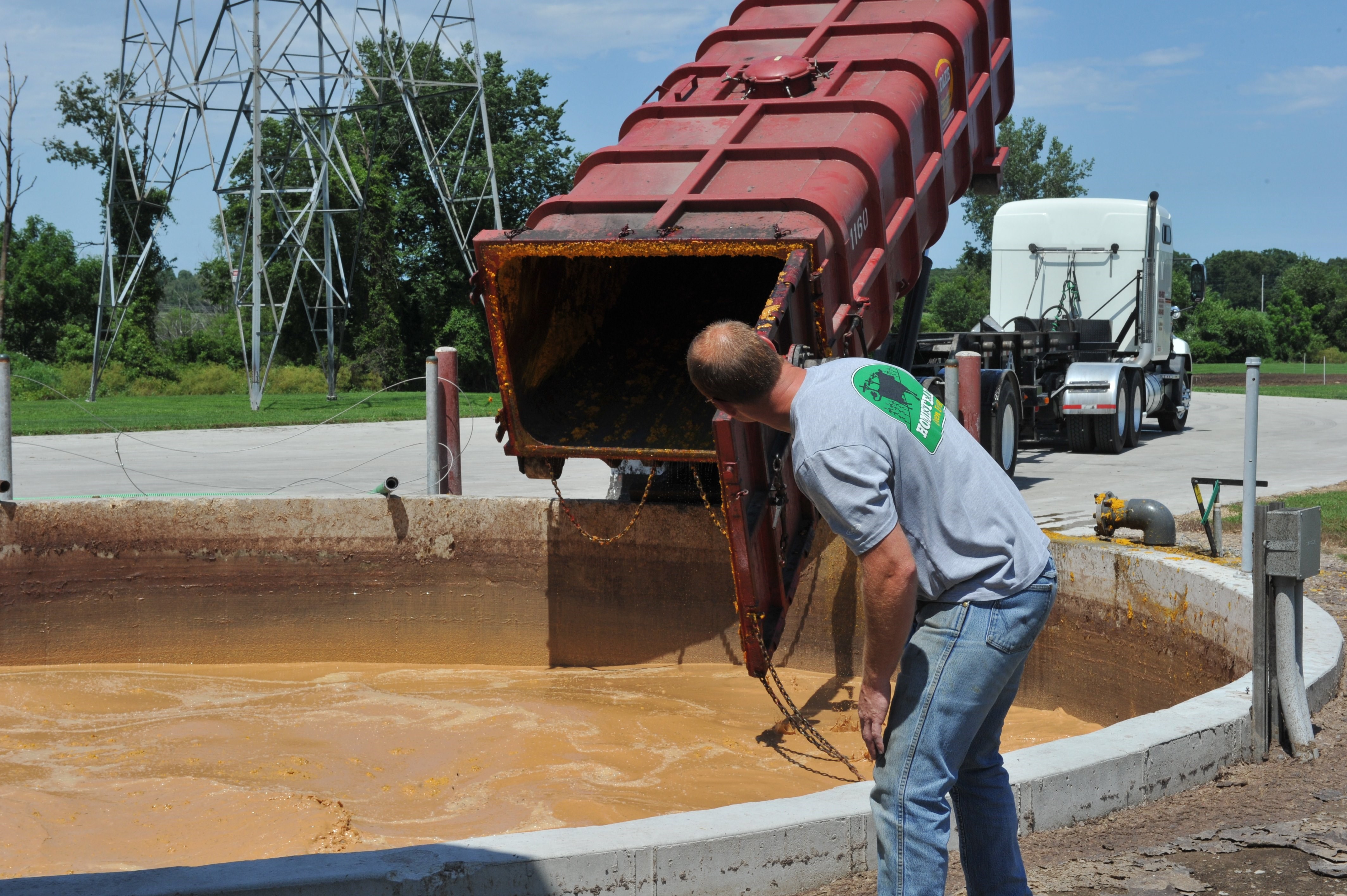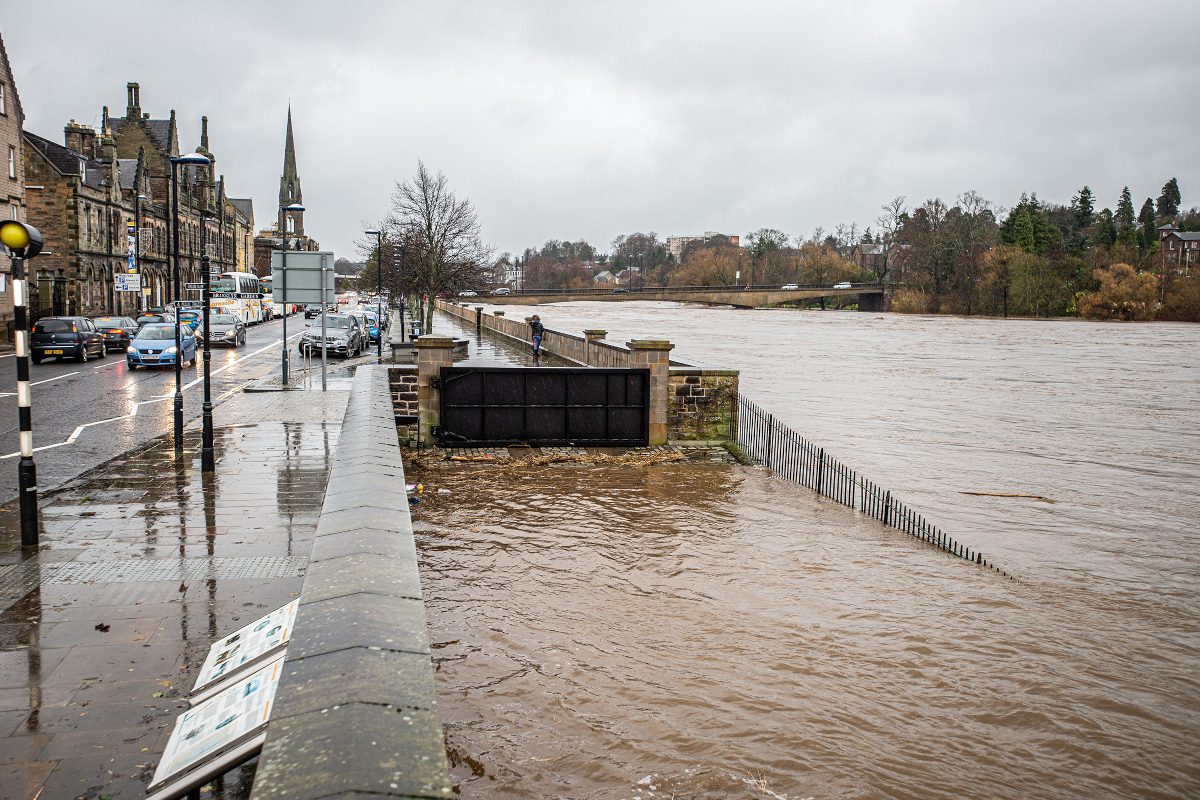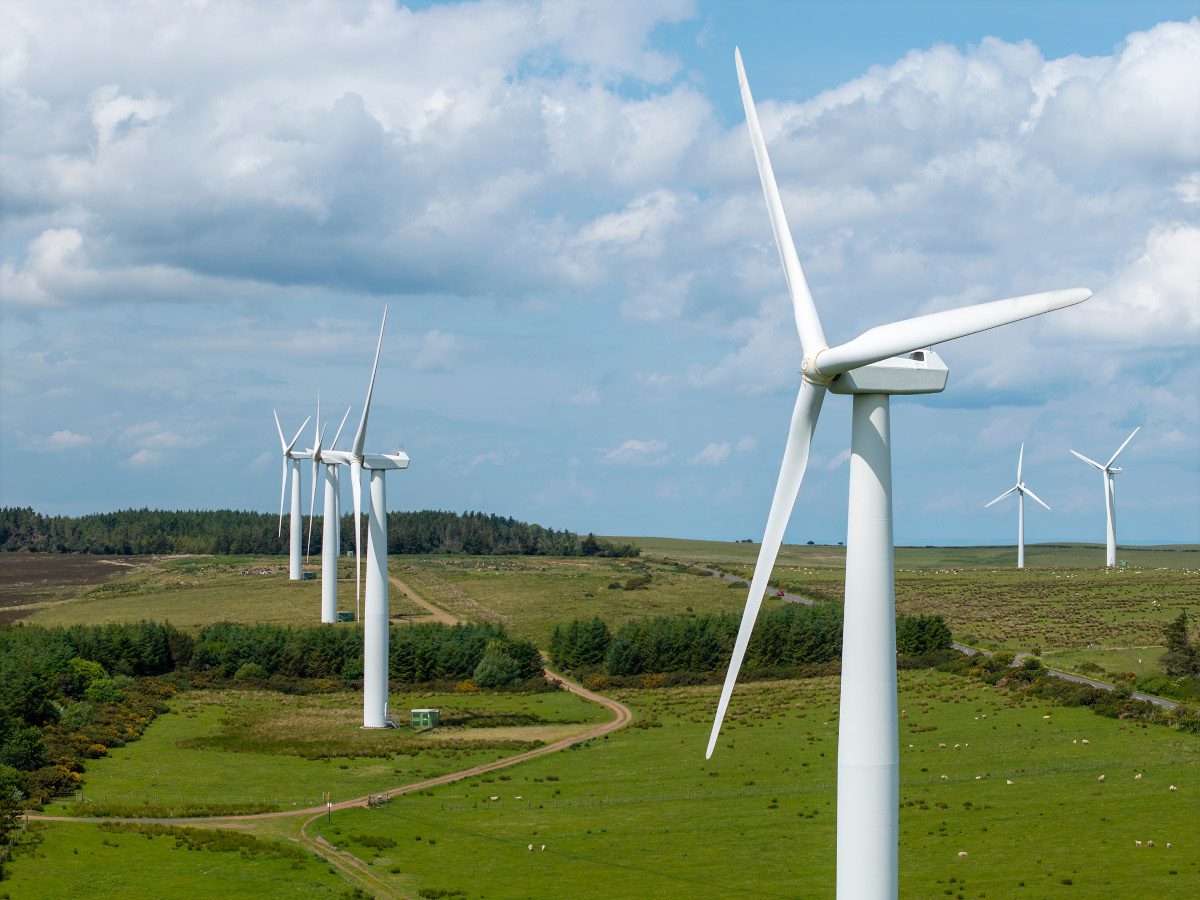Freshwater use in oil and gas drilling has come under scrutiny in Colorado as the state faces a historic drought. On Wednesday, March 12, state regulators announced new rules that will require drillers to use more recycled water in their operations and, hopefully, relieve pressure on scarce freshwater resources.
As Colorado continues to produce fossil fuels at record pace, the Centennial State has become awash in a caustic, brackish and chemically-laden fluid known as produced water, a byproduct of the drilling and fracking process.
This water can have high levels of salts, metals and other contaminants, making it more difficult and expensive to treat for reuse than for disposal. Oil and gas companies in Colorado typically dispose of produced water by pumping it back into old, out-of-service wells and other geological formations using injection wells, permanently severing it from the hydrological cycle. Meanwhile, freshwater demand for oil and gas production in Colorado is forecasted to rise in the coming decade as the industry drills deeper vertically and farther horizontally.
We’re hiring!
Please take a look at the new openings in our newsroom.
See jobs
The oil and gas industry, whose activity in Colorado accounts for almost 4 percent of U.S. total crude oil output, uses about 11 billion gallons of fresh water annually in Colorado, according to data collected by the Colorado Energy and Carbon Management Commission (ECMC). That’s comparable to the amount of water stored behind a small dam, but accounts for less than one percent of all fresh water used in the state.
“Things are changing quickly” for Colorado as climate change intensifies, said Harmony Cummings, a director of the Green House Connection Center, an environmental nonprofit party to the rulemaking. “How low the reservoirs are is terrifying to me.”
Turning Waste Into a Resource
In 2023, the Colorado state legislature passed HB23-1242, which required the ECMC to adopt rules “requiring a statewide reduction in usage of fresh water and a corresponding increase in usage of recycled or reused water in oil and gas operations.”
The bill also created Colorado’s Produced Water Consortium, a body of 31 people including regulators, industry representatives, environmentalists and scientists. The group is studying how produced water that comes to the surface during drilling can be reused in other oil and gas operations to reduce freshwater consumption, and its reports served as the basis for its recommendations to the ECMC.
“The consortium started out with everyone coming in with an agenda,” said Hope Dalton, the consortium’s director. “Then they began to learn from each other and trust each other and really work to create these data-informed recommendations…I think the recommendations are very solid.”
Produced water is a catch-all term for water that flows out of oil and gas wells after conventional drilling or hydraulic fracturing, or fracking. This liquid waste can contain drilling chemicals injected into wells, toxic hydrocarbons like benzene, a known carcinogen, and water dislodged from deep underground that carries sediments, salts, metals like barium, manganese and strontium, and Naturally Occurring Radioactive Materials (NORM).

The Produced Water Consortium compiled data on existing water practices in Colorado’s oil and gas industry to inform the rule-making. It found that water diverted for fracking in Colorado totals about 26,000 acre feet a year, or 0.17 percent of the state’s total water use. One acre-foot is 325,851 gallons of water, meaning the oil and gas industry holds rights to about 8.5 billion gallons of freshwater annually.
Between July 2023 and March 2024, according to the consortium’s findings, operators reported to the state that they disposed of 87 percent of their produced water and recycled the remaining 13 percent. Companies reported that 93.2 percent of produced water disposal was into underground injection wells. Much smaller volumes of water are disposed of in pits or discharged into state surface water bodies. The initial data on recycling rates is self-reported by the companies and only reflects the short period of time that reporting has been required.
The Denver-Julesburg basin, or DJ Basin for short, along Colorado’s Front Range is home to a vast majority of the industry’s development and water demand. It is also home to the vast majority of the state’s population, including the metro areas of Denver, Boulder and Fort Collins. From 2019 to 2024, an average of two new fracking wells were completed daily in the DJ Basin, five-and-a-half times the industry’s rate in other basins in the state, according to ECMC data.
Companies in the DJ Basin account for almost three quarters of the industry’s total water use, according to ECMC data from 2022. In the DJ Basin, only 0.4 percent of that water is recycled. The Western Slope, which is more rural, has fewer drilling companies but a much higher rate of recycling produced water for operations, sometimes as high as 100 percent.
Under Colorado’s new regulations, by the beginning of 2026, oil companies must use at least 4 percent recycled produced water across their operations in the state. In 2030, that requirement increases to a minimum of 10 percent.
The ECMC will convene again in 2028 to draft new benchmarks beyond 2030. If a consensus fails to emerge, minimum averages of 20 percent recycled water in 2034 and 35 percent in 2038, as recommended by the Consortium, will become law.
If an operator is unable to meet these thresholds, they would be allowed to purchase “credits” for excess produced water recycled by other operators, but only if those credits would be used in the same basin.
“Increasing recycling doesn’t necessarily equate to a decrease in freshwater” use, said Cummings. If the rate of fracking in Colorado rises faster than the produced water recycling thresholds, it’s possible that produced water reuse and freshwater use could both go up, she said.
Other new rules require oil and gas companies to make quarterly reports on what freshwater is used for, the total amount of water and produced water used in each basin, and figures on emissions from truck traffic, among other statistics. Operators will also be required to report how they would meet produced water reuse thresholds. The ECMC could issue penalties to companies that don’t comply with the new rules.
But Cummings worried those penalties aren’t onerous enough. There are “no real teeth” in the enforcement mechanisms, said Cummings, who spent eight years working in the oil and gas industry. If given the proper combination of regulation and incentives, she is confident companies could recycle produced water at greater rates than Colorado is requiring.
“I’ve seen them do incredible projects when profits are on the other side of that,” she said.
This story is funded by readers like you.
Our nonprofit newsroom provides award-winning climate coverage free of charge and advertising. We rely on donations from readers like you to keep going. Please donate now to support our work.
Donate Now
The rulemaking process took a turn when attorneys for two environmental groups, three counties and five oil and gas groups submitted a “consensus draft” to the ECMC containing revisions to its initial draft rules. The document’s characterization as a consensus is heavily contested by other industry and environmental parties to the rulemaking, but its draft rules have become law.
For environmentalists, the decision to partner with industry on new recommendations was driven by the assumption that they would be negotiating from a “significant minority position,” said Barbara Vasquez, who sits on the board of the environmental group Western Colorado Alliance, one of the parties to the draft.
Eight oil and gas groups attended the rulemaking session in February where the draft rules were all but finalized. Five environmental groups were present, along with a handful of counties.
Vasquez believes the credit system will help avoid an increase in greenhouse gas emissions across Colorado, especially in rural areas, by helping companies reduce the truck traffic necessary to haul produced water between facilities.
The rules will also allow companies to meet the recycling targets by using other wastewater to frack, instead of recycled produced water. The rule refers to this as a “produced water alternative,” which Vasquez would like to see clearly defined so that water claimed as an alternative could not take water out of the hydrologic cycle.
Many oil and gas groups testified in support of the credit system during the rulemaking, including the Energy Council, a nonprofit trade group representing companies in the San Juan basin in southwestern Colorado, which said the system “provides a compelling opportunity to incentivize water recycling.”
The industry also pushed to alter how disproportionately impacted communities are defined to make it easier to build produced water recycling infrastructure.
Michelina Paulek, the Energy Council’s executive director, told Inside Climate News that the bill requiring less fresh water use and more recycling of produced water had “substantial flaws” and should have been amended to provide remedies for disproportionately impacted communities prior to the rulemaking.
Representatives for Chevron, one of the co-authors of the draft rules that have become law, did not return requests for comment.
Upcoming Reuse Questions
Colorado is among several states seeking disposal and recycling alternatives for the vast quantities of produced water that oil and gas drilling generates.
In Pennsylvania’s Marcellus Shale, where produced water is oftentimes radioactive, fracking companies send produced water to landfills, where it has been known to contaminate local watersheds, or pump it below ground via injections wells.
Produced water injection wells in the Texas Permian Basin have been linked to hundreds of earthquakes in recent years, leading regulators to restrict deep injection wells. Unlike in Colorado, where reuse is still limited to the oilfields, pilot projects in Texas are using treated produced water to irrigate crops and restore rangeland. The use of produced water to irrigate some crops is also permitted in California.
Texas is also reviewing permits to discharge treated produced water into rivers. On the other side of the Permian Basin in New Mexico, regulators are developing rules to govern produced water treatment for reuse outside the oilfields.
Treating produced water in the Permian Basin is particularly costly because of the extremely high salt content of the water. Permian Basin wells are also known to produce a higher ratio of water to oil than those in other basins.
Thomas Borch, a professor of environmental and agricultural chemistry at Colorado State University, said that produced water in the DJ Basin has sodium chloride concentrations, measured as total dissolved solids, of around 30,000 milligrams per liter (mg/L). In the Permian, that figure can exceed 100,000 mg/L.
“The good news is that the lower salt concentration makes it much easier … and cheaper to treat water in Colorado,” Borch said in an email, referring to reverse osmosis treatment, which forces the fluid through a membrane to separate the water molecules from chlorides. Borch has published several papers on produced water treatment.
While the recent rulemaking focused on recycling produced water to frack wells, looking ahead the consortium will also evaluate the potential reuse of produced water outside the oil fields.
About This Story
Perhaps you noticed: This story, like all the news we publish, is free to read. That’s because Inside Climate News is a 501c3 nonprofit organization. We do not charge a subscription fee, lock our news behind a paywall, or clutter our website with ads. We make our news on climate and the environment freely available to you and anyone who wants it.
That’s not all. We also share our news for free with scores of other media organizations around the country. Many of them can’t afford to do environmental journalism of their own. We’ve built bureaus from coast to coast to report local stories, collaborate with local newsrooms and co-publish articles so that this vital work is shared as widely as possible.
Two of us launched ICN in 2007. Six years later we earned a Pulitzer Prize for National Reporting, and now we run the oldest and largest dedicated climate newsroom in the nation. We tell the story in all its complexity. We hold polluters accountable. We expose environmental injustice. We debunk misinformation. We scrutinize solutions and inspire action.
Donations from readers like you fund every aspect of what we do. If you don’t already, will you support our ongoing work, our reporting on the biggest crisis facing our planet, and help us reach even more readers in more places?
Please take a moment to make a tax-deductible donation. Every one of them makes a difference.
Thank you,





